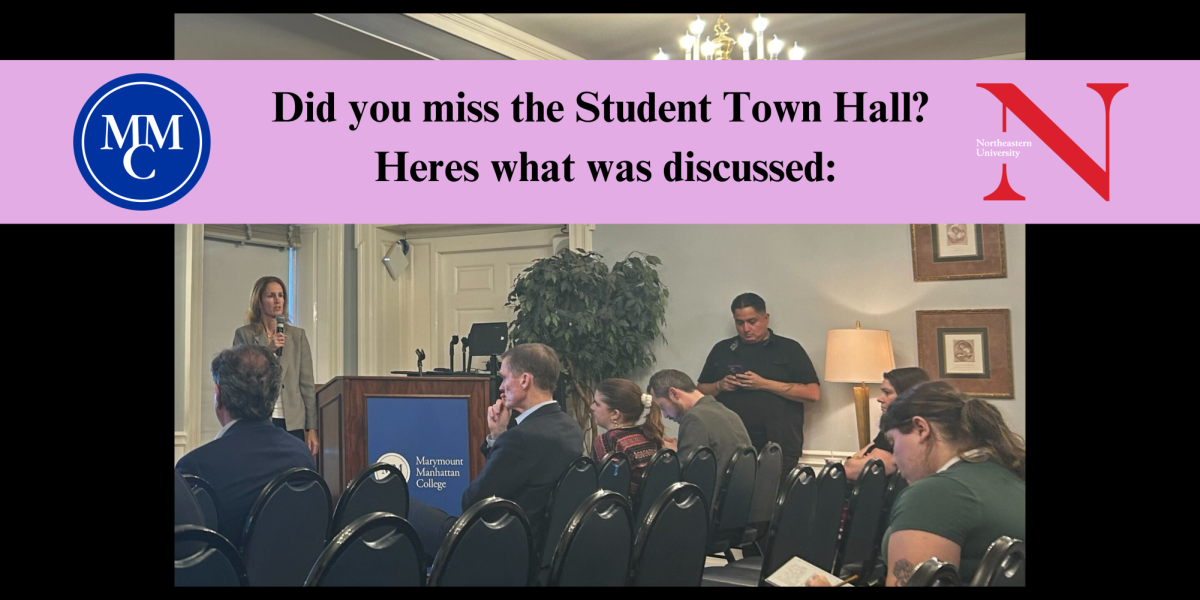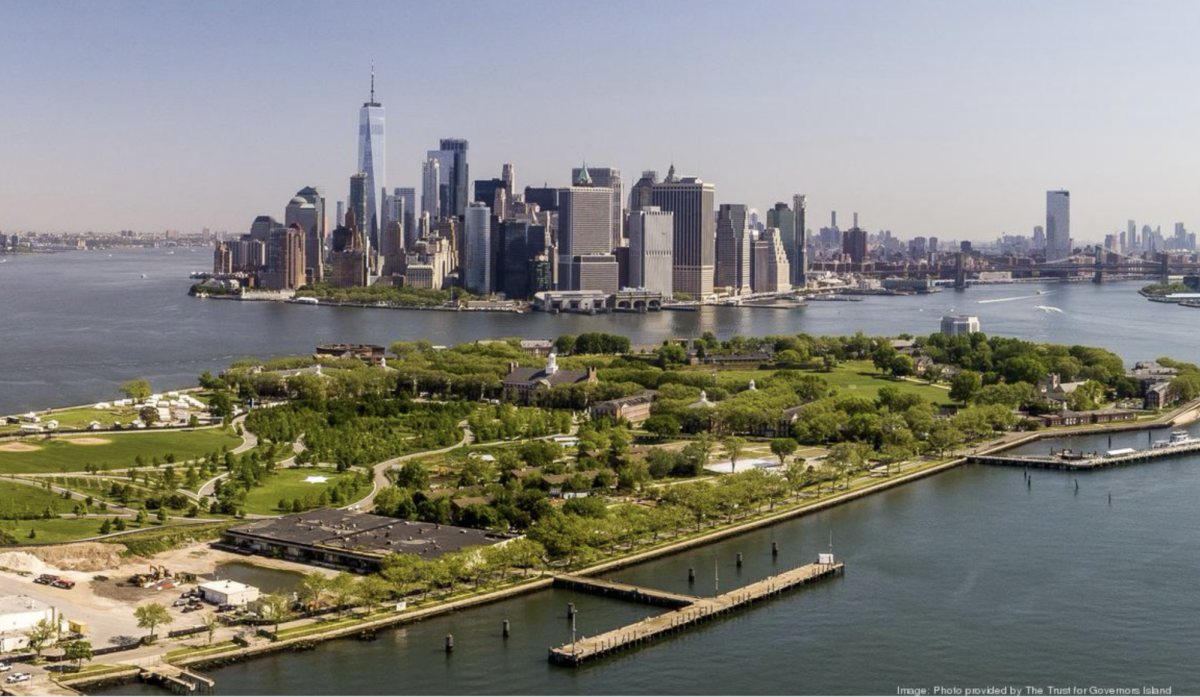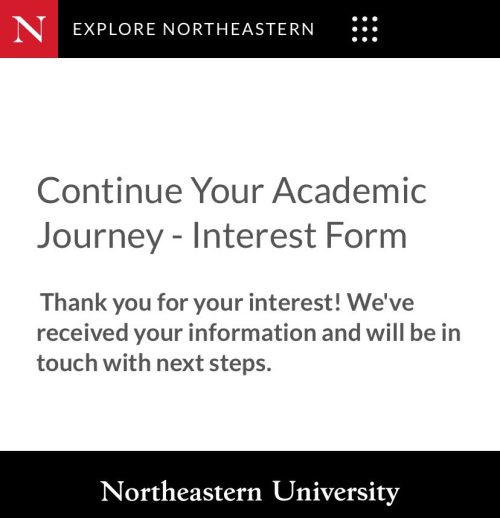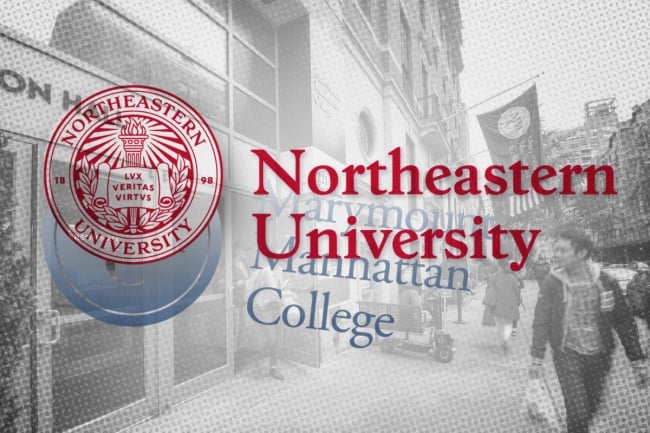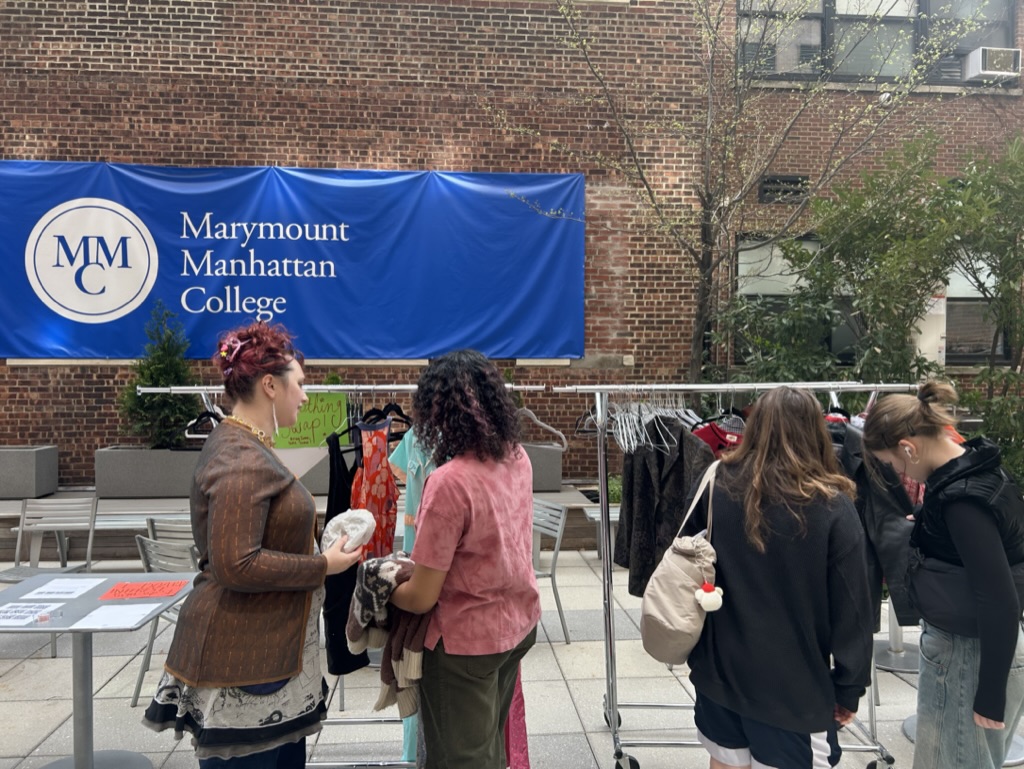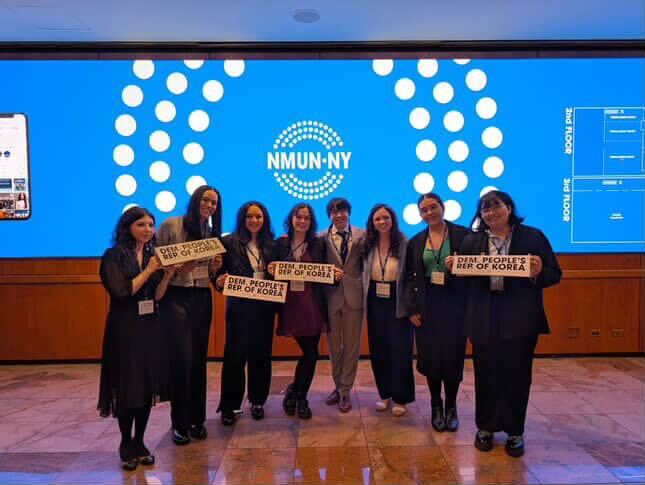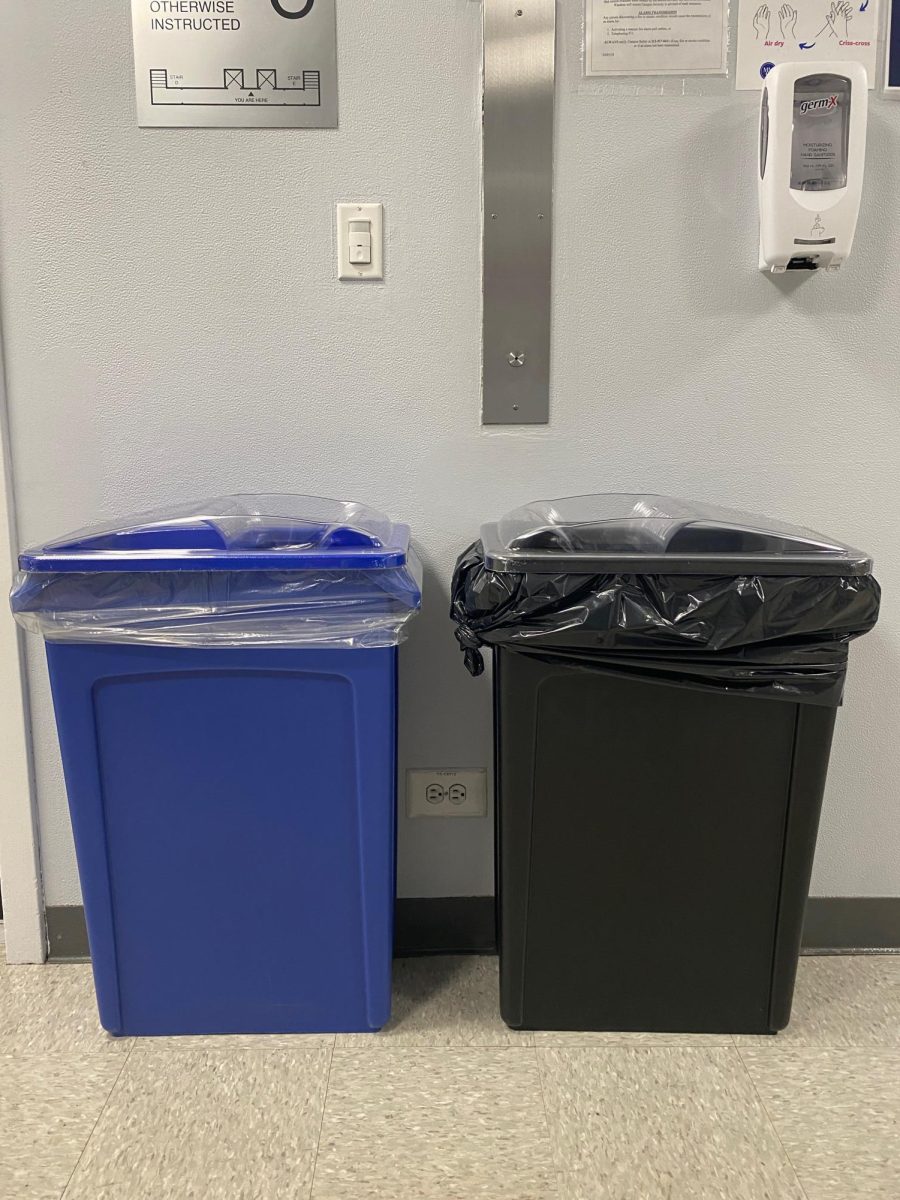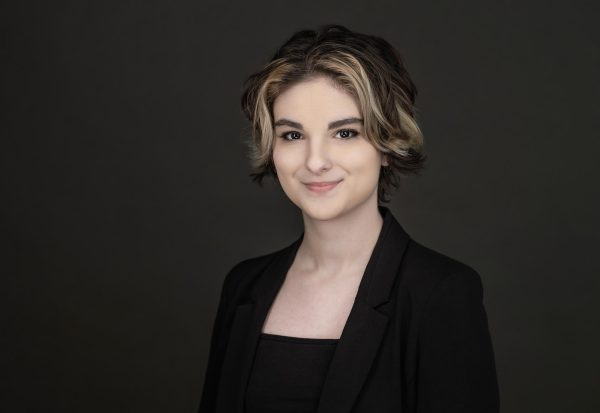Hosted in the Regina Peruggi room and on Zoom, academic leaders from MMC and Northeastern University held two Student Town Hall sessions, on Oct. 1 from 4-5 p.m. and Oct. 2 from 12:30-1:30 p.m. The sessions were informational meetings, focused on academics, followed by a brief time of Q&A.
Only 15 MMC students were in attendance on Oct. 1. MMC’s Emmalyn Yamrick, Dean of Students, and Katie Langan, VP of Academic Affairs opened the meeting with introductions and a cursory reexplanation of why MMC is merging with NU.
“Our goal is really to be transparent in this process,” said Yamrick.
Because of fewer international students, declining birth rates, and the great recession of 2008, numbers are dropping.
“Colleges are expecting to pull from a pool 500,000 less students,” said Yamrick, “With that data, our board of trustees looked forward and wanted to identify a way to preserve the mission and other core elements of Marymount College.”
There are three phases of the merger: the state of New York must approve the merger, the federal government must approve the merger, and then MMC will have an official transition to the name Northeastern – New York City, or NU – NYC.
While much is unknown, the town halls were focused on academics and the process that continuing MMC students will go through. Three NU academic leaders spoke: Thomas Sheahan, Executive Vice Provost, followed by Jane Amidon, Vice Provost for Network Academic Programs, and Mike Pollastri, Senior Vice Provost.
The discussion began with an ‘about NU’ talk that resembled a typical campus tour college information session. NU is a nationally recognized R1 research university that encourages students to participate in its co-op program. Current MMC students are expected to be eligible for the program as long as it won’t delay their degree timeline.
Though there are many steps to this transition, no reapplication is necessary for current MMC students of ‘good standing’ to become a NU – NYC student.
“You will be learning from the same faculty in the same spaces, you will not have to move to Boston to continue in your degree programs,” said Sheahan, “In many ways, things will not change much at all because you will still have the same faculty advisors and staff here.”
Degrees that don’t have direct equivalencies at NU will be recreated so every student can continue their path of study. These will be called gap degrees.
“If you hear that term, it means, for example, a BFA that may not exist at Northeastern will be recreated in order for you to complete your studies,” said Amidon, “Some people will have very clear major equivalencies, like biology to biology, but some concentrations may be honored as a combined major or separate minor program.”
The process is not going to be a quick one, and no real changes can be expected until after the turn of the year.
“We are right now in the process of initiating conversations with colleagues across the institutions, the academic leadership, academic staff, about getting to know the programs, getting to know the way that teaching occurs on this campus,” said Amidon.
The estimated timeline for student academic transition was outlined as follows:
Oct 2024: Student town hall – overview of the transition and integration process
Nov-Dec 2024: Divisional info sessions – program equivalencies and degree pathways, degree audit tool and credit transfers, overview of advising and course registration process
Jan-April 2025: major-by-major and individual advising – enrollment hand-raising–electronic non-binding disclosure of intent to continue education at NU-NYC, customized degree maps, one-on-one advising, and financial aid counseling, decision support
“Students will enter NU with equivalent, similar financial aid packages as awarded to them by MMC,” said Amidon.
The town hall concluded after a Q&A with students in attendance. NU and MMC leaders plan to hold more town halls throughout the year.
“Throughout this entire process, our goal is to serve in the student’s best interests,” said Amidon.

